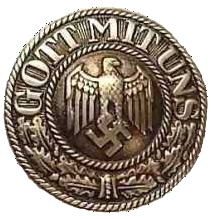Chapter X
The Mask Of Federalism
IN THE WINTER OF 1919, AND STILL MORE IN THE SPRING AND SUMMER OF 1920, the young Party felt bound to take up a definite stand on a question which already had become quite serious during the War. In the first volume of this book I have briefly recorded certain facts which I had personally witnessed and which foreboded the break-up of Germany. In describing these facts I made reference to the special nature of the propaganda which was directed by the English as well as the French towards reopening the breach that had existed between North and South in Germany. In the spring of 1915 there appeared the first of a series of leaflets which was systematically followed up and the aim of which was to arouse feeling against Prussia as being solely responsible for the war. Up to 1916 this system had been developed and perfected in a cunning and shameless manner. Appealing to the basest of human instincts, this propaganda endeavoured to arouse the wrath of the South Germans against the North Germans and after a short time it bore fruit. Persons who were then in high positions under the Government and in the Army, especially those attached to headquarters in the Bavarian Army, merited the just reproof of having blindly neglected their duty and failed to take the necessary steps to counter such propaganda. But nothing was done. On the contrary, in some quarters it did not appear to be quite unwelcome and probably they were short-sighted enough to think that such propaganda might help along the development of unification in Germany but even that it might automatically bring about consolidation of the federative forces. Scarcely ever in history was such a wicked neglect more wickedly avenged. The weakening of Prussia, which they believed would result from this propaganda, affected the whole of Germany. It resulted in hastening the collapse which not only wrecked Germany as a whole but even more particularly the federal states.
In that town where the artificially created hatred against Prussia raged most violently the revolt against the reigning House was the beginning of the Revolution.
It would be a mistake to think that the enemy propaganda was exclusively responsible for creating an anti-Prussian feeling and that there were no reasons which might excuse the people for having listened to this propaganda. The incredible fashion in which the national economic interests were organized during the War, the absolutely crazy system of centralization which made the whole Reich its ward and exploited the Reich, furnished the principal grounds for the growth of that anti-Prussian feeling. The average citizen looked upon the companies for the placing of war contracts, all of which had their headquarters in Berlin, as identical with Berlin and Berlin itself as identical with Prussia. The average citizen did not know that the organization of these robber companies, which were called War Companies, was not in the hands of Berlin or Prussia and not even in German hands at all. People recognized only the gross irregularities and the continual encroachments of that hated institution in the Metropolis of the














